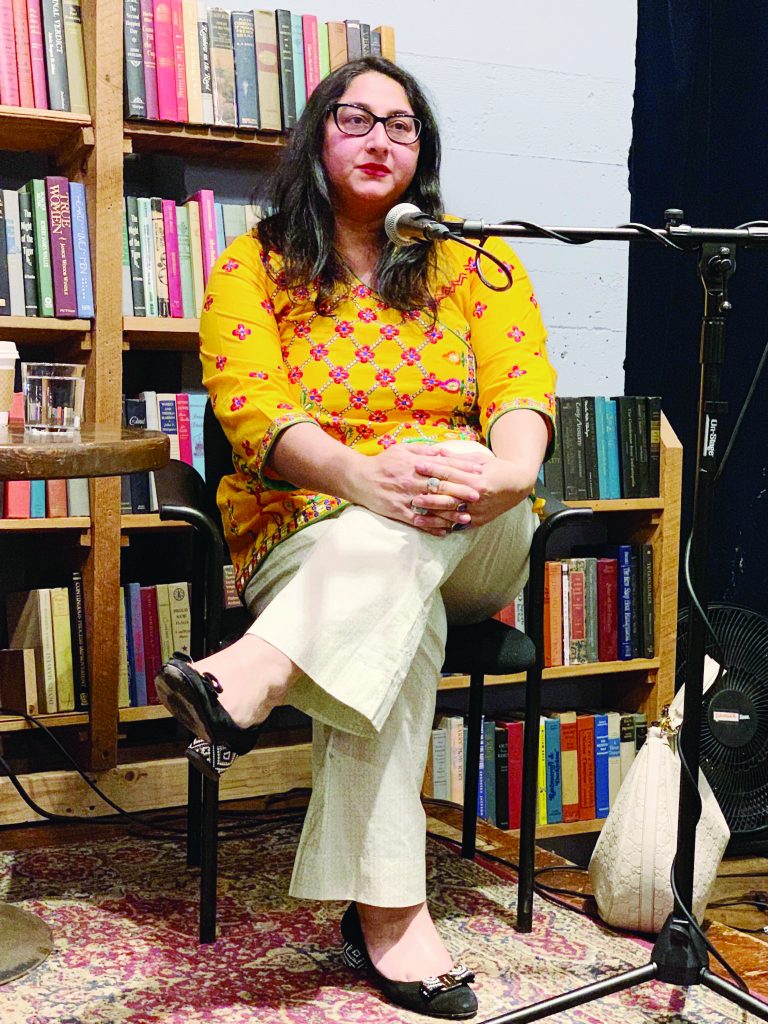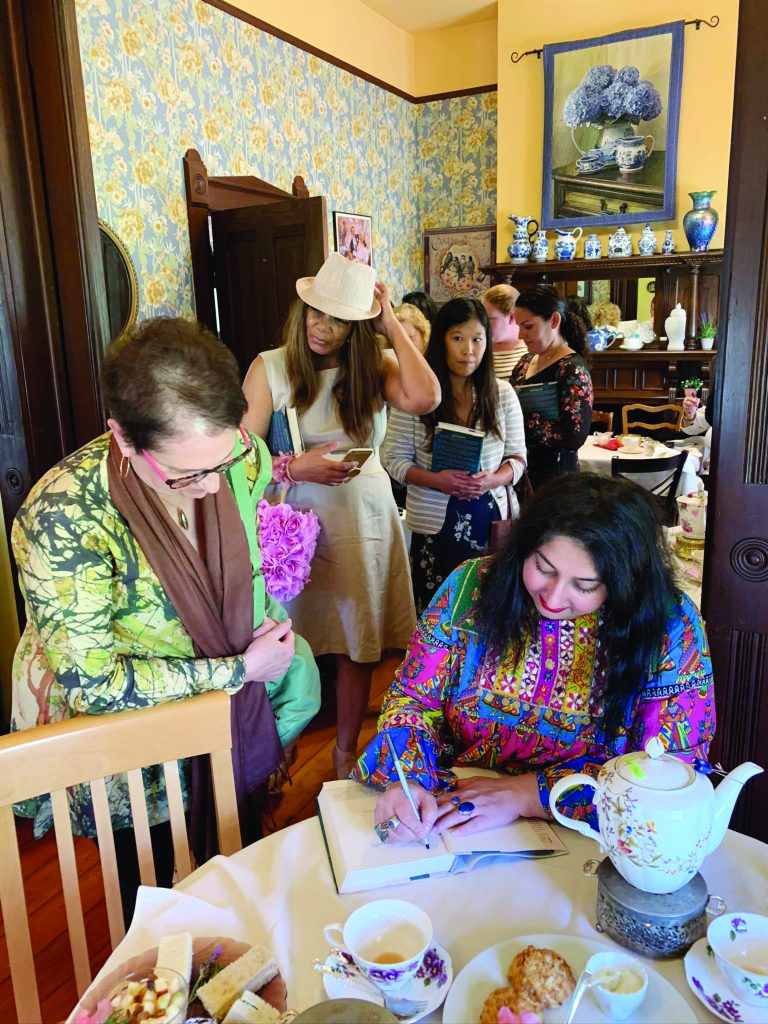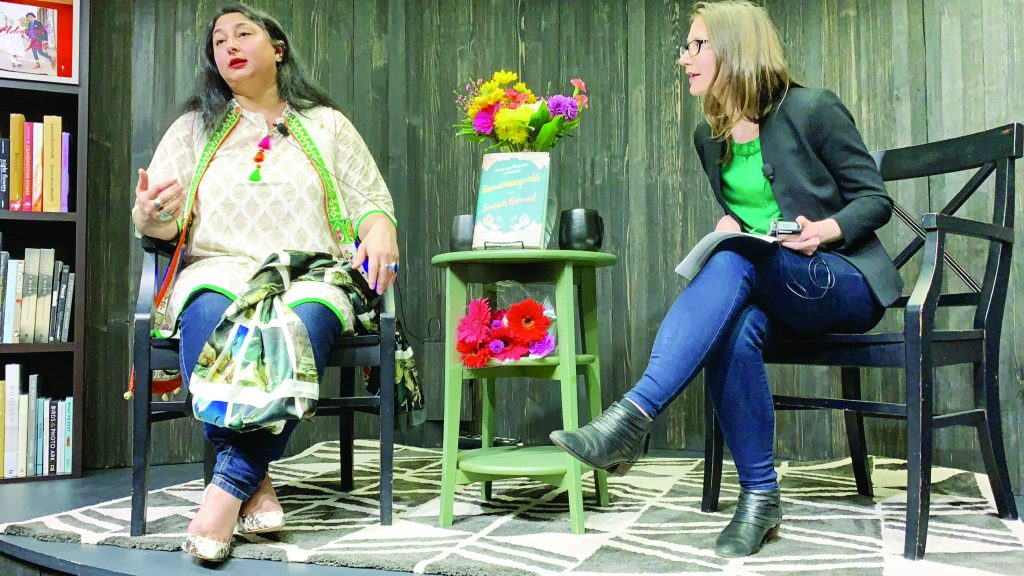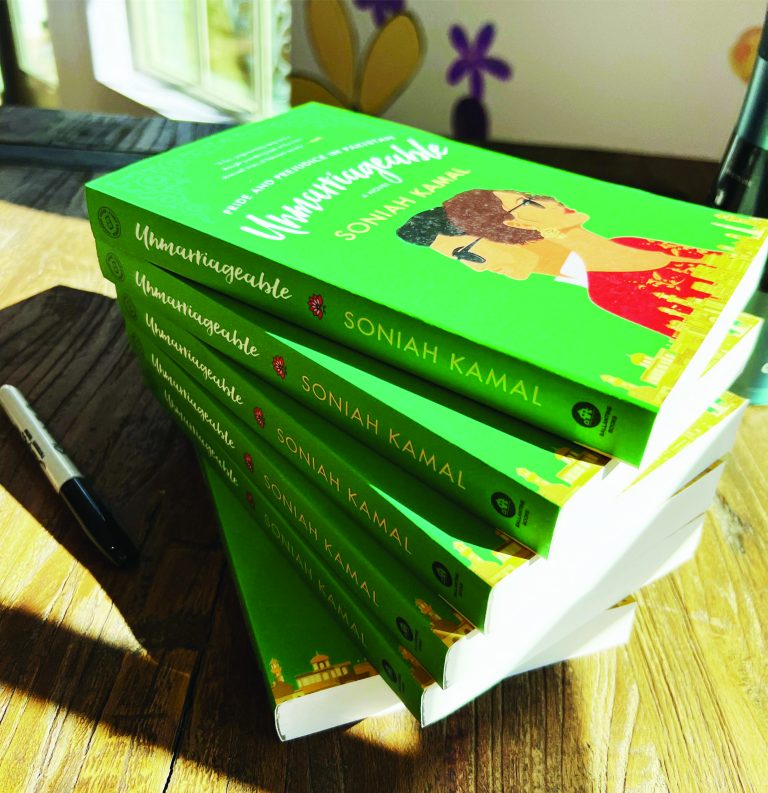Soniah Kamal is an award-winning novelist, essayist, and public speaker. Her most recent novel, “Unmarriageable: Pride & Prejudice in Pakistan” is featured on PBS Books, while Publishers Weekly titled it a‘must read’ and Shelf Awareness stated “If Jane Austen lived in modern-day Pakistan, this is the version of Pride and Prejudice she might have written.”
In this exclusive Q&A session, team Mindful delves deep into the mind of the gifted writer.

Q: How did your writing journey begin?
Ans: I never wanted to be a writer, instead I always wanted to be an actress. I actually have a complete TEDx talk on this! I’ve been an eager reader since I was a little childthough. I found my family, my home and myself in all the books that I used to read. I also loved storytelling. I guess it was only natural then, that when I couldn’t pursue my dream of acting, I became an author. I have an essay called “The Reluctant Writer” because I was very reluctant to write.
Q: Who do you look up to as an author?
Ans: I don’t look up to any authors in particular, but I do have a lot of favorite short stories, books and novels thathave influenced me. Shirley Jackson’s “The Lottery,” Chopin’s “The Awakening,” Manto, Ismat Chughtai, Qurratulain Hyder, Jane Austen, Virginia Woolf – there are too many to name!
Q: What themes do you explore with your work?
Ans: I often write about relationships. I write about war. The effects on communities and individuals when they have to subscribe to societal guidelines and what’s expected from them, rather than what they want to do for themselves. I think this is a universal topic since time immemorial and leaves individuals torn between making life choices. This is mainly the essence of my work, be it short stories, essays or my novels.
Q: Tell us about your educational background.
Ans: I grew up in England, followed by Saudi Arabia, where I went to an international school. It was very seminal for me because I was attending school amongst a mini United Nations student body; my friends were from all over the world. After moving to Pakistan, I went to Lahore Grammar School and then finished my A-Levels from LACAS. For college, I went to the United States and met my partner in my senior year there. Since then, I’ve continued living there, but visit Pakistan very frequently. Recently, I completed my Master’s degree as well.

Q: What’s a memory from your childhood that’s very dear to you?
Ans: I think my most comforting childhood memory is probably when I was eleven or twelve years old; this was when I lived in Saudi Arabia with my family and played on the rooftops instead of parks. I used to take my roller blades and just skate from one end of the roof to the other while telling myself stories. As I mentioned, I’ve always been a storyteller.
Q: Was moving to the United States fate or a conscious choice?
Ans: Going to the US for college was my choice, but when I met my partner there and got married, I became an immigrant by default. I always intended to come back to Pakistan, but had to continue staying in the US. It all falls back to my thematic material: do we really make our choices or do our choices get made for us? And more importantly, how do we make peace with these two seesaw elements? I have an essay on this topic that’s available online.
Q: Your novel “Unmarriageable” draws from Jane Austen’s “Pride and Prejudice.” How did you marry these two?
Ans: My novel “Unmarriageable” is a parallel retelling of Jane Austen’s “Pride and Prejudice.” I’m a post-colonial child with my first language being English despite growing up in Pakistan. Whilst reading about the British Empire, I came across Thomas Babington Macaulay’s address to the British parliament where English was made the official language across the British Empire and that changed everything. It made me realize the ‘status’ English has in Pakistan and other colonial countries versus the indigenous languages. Honestly, I was quite offended and that’s when I realized I wanted to take an English classic and attempt a spin on it. The first time I read ‘Pride and Prejudice’; it felt very Pakistani to me. In fact, I started calling Jane Austen, “Jane Khala” because she was a Pakistani writer to me. The novel is about five sisters and their mother who wants them to get married, and really – eventhough we’re living in contemporary Pakistan – is there anything more Pakistani than a mother who wants her daughters to get married as soon as possible and as well as possible? So that’s why I chose to do this. It’s my way of having a conversation with the British Empire. It’s been called Babington Macaulay’s nightmare and rightly so, because I don’t think he would have ever, in his wildest imagination, thought that a Pakistani would retell a British classic. After all, we were never supposed to revise something from our colonizers.
Q: What are the cultural and intellectual differences that you’ve felt between the United States and Pakistan?
Ans: There are many differences all over the world depending on whether a society is more community based or more individual based. Pakistan has a very family-oriented culture, whereas American culture is very individualistic. But the fact is that there are many sides toeach country. There are many Pakistans within Pakistan, many Americas within America, and many Englandswithin England. It really comes down to your specific culture, religion and family. This often determines what path you’ll pick in your life. So you can find Pakistan in America and America in Pakistan when it comes to values and ethics.
Q: Would you say that your writing liberates you?
Ans: There are so many types of writing, so many styles. When it comes to me, I write for publications and for others to read me. In professional writing, I have to write to entertain or to give my opinion on a social issue. On the other hand, there’s journal or diary writing which allows you to write whatever thoughts you have.
I have always had strong opinions on the social issues around us and as a novelist, I get to write the stories for my characters. I get to choose who lives, dies, fulfills their dreams and so many other things. Writing has served me very well because I get to make all the decisions the way I didn’t get to make in real life.

Q: What does the future hold for you?
Ans: The future holds what the future will hold. None of us can predict what it will look like. It can be full of joy and happiness, or it can be the opposite. The only thing in our control is our reaction. My biggest takeaway from life every day is to be kind. Smile at people or help others out if you can, you don’t know what it would mean to them.



